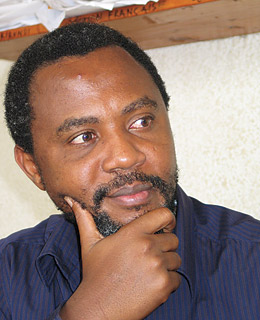
In my time reporting around the globe, I have witnessed the destructive power of the press but also its ability to enable peace and reform. In 2001, Burundian journalist Alexis Sinduhije founded Radio Publique Africaine (RPA) as a means of fostering peace between the Tutsi and the Hutu in his war-torn country. (Starting in the mid-1990s, a lengthy civil war between the two ethnic groups led to the death of more than 300,000 people in Burundi, most of them civilians.)
A Tutsi who adopted a Hutu war orphan, Sinduhije conceived of RPA while working at the state radio station, where, he says, his colleagues regularly allowed their ethnic background to color their reporting. His goal was "to humanize relations between the ethnic groups." The journalists he hired included both Tutsi and Hutu ex-combatants.
Now in his early 40s, Sinduhije has braved arrest, beatings and even an attempt on his life to keep the station going. In 2003 the government slapped a ban on RPA for airing an interview with a rebel spokesman. Other private radio stations showed solidarity, refusing to broadcast any government news until the ban was lifted. The government gave in three days later.
Sinduhije recently put his journalism career on hold. In December he founded a new political party and soon announced his candidacy for Burundi's 2010 presidential election.
Amanpour is CNN's chief international correspondent